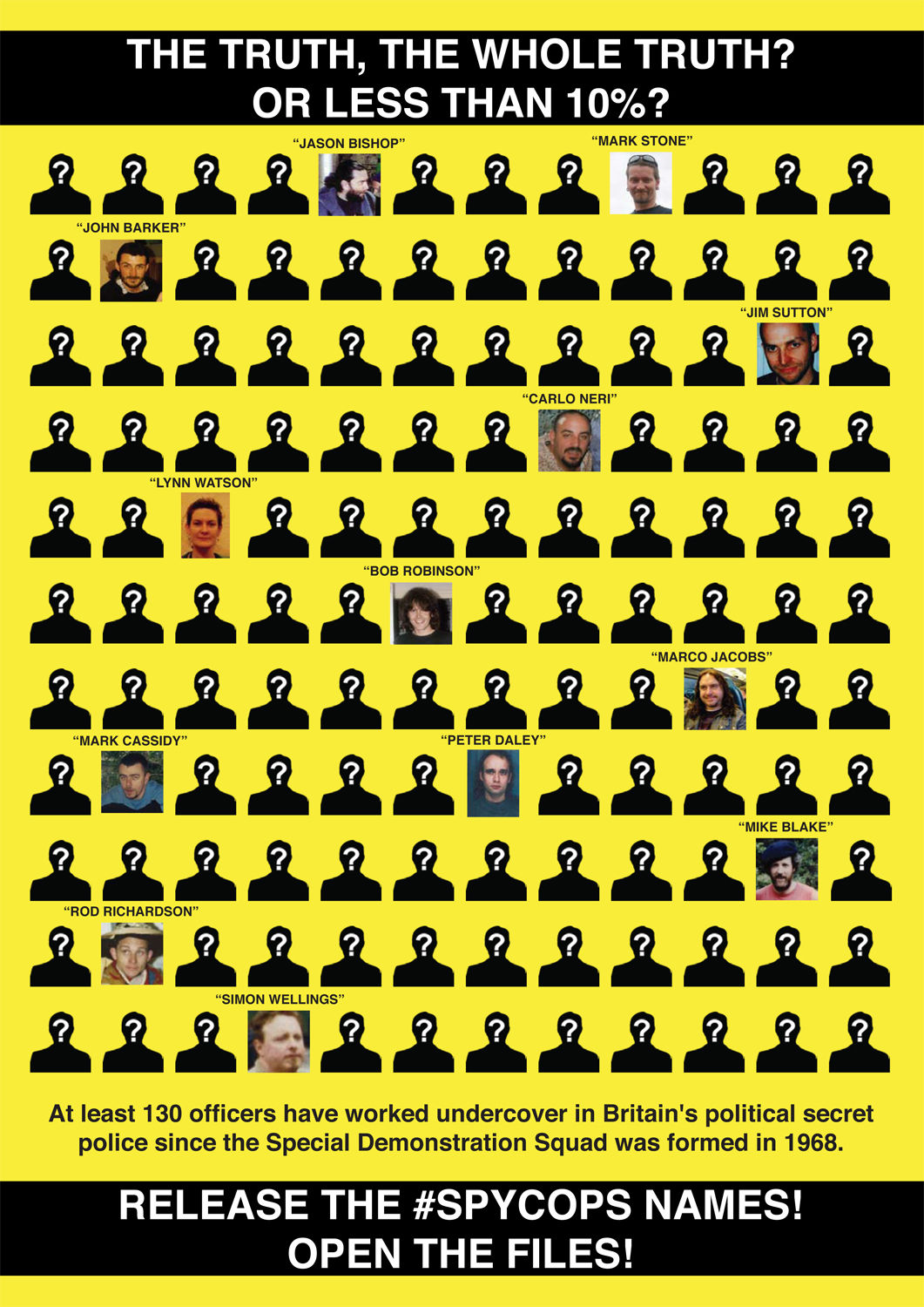[contextly_auto_sidebar]
 There will be no across-the-board anonymity offered to undercover officers in the forthcoming inquiry into undercover policing. The chair Lord Justice Pitchford this morning published a ruling on the use of restriction orders banning the disclosure of evidence which confirmed that there would be no ‘blanket solution’ to the issue of naming of individual officers. He stressed the public interest in the inquiry being ‘as open as possible’ and ruled that decisions would be made on a case-by-case basis. The ruling is available here.
There will be no across-the-board anonymity offered to undercover officers in the forthcoming inquiry into undercover policing. The chair Lord Justice Pitchford this morning published a ruling on the use of restriction orders banning the disclosure of evidence which confirmed that there would be no ‘blanket solution’ to the issue of naming of individual officers. He stressed the public interest in the inquiry being ‘as open as possible’ and ruled that decisions would be made on a case-by-case basis. The ruling is available here.
Sir Christopher Pitchford said that the ‘starting point for all applications’ will be that no restriction order would be made ‘unless it is necessary to protect individuals from harm (which will include consideration of rights under the European Convention on Human Rights), or it is in the interests of effective policing’.
In March, Donal O’Driscoll, one of nearly 200 victims of police spying operations granted core participant status, told Kate Thomas for the Justice Gap that the preliminary hearing on the inquiry’s approach to restriction orders would ‘set the foundations for the rest of the Inquiry’ (here) ‘Worst case scenario is that the judge goes for a totally secret inquiry, in which case it’s pretty much dead in the water,’ he said. ‘Nobody on the non-state side will trust it in any form. In all likelihood there would be a mass walkout.’
Police agencies had argued that Pitchford should uphold the practice of ‘neither confirm nor deny’. This would have meant that hearings would be held almost entirely in secret, and the details of undercover operations, including the identity of officers, would remain hidden from the public. Pitchford has today ruled that ‘neither confirm nor deny’ could not of itself be a reason to make a restriction order. ‘[It] may be a consideration but the weight, if any, to be afforded to it will depend on the risk of harm or damage its use is seeking to avoid,’ the inquiry added.







